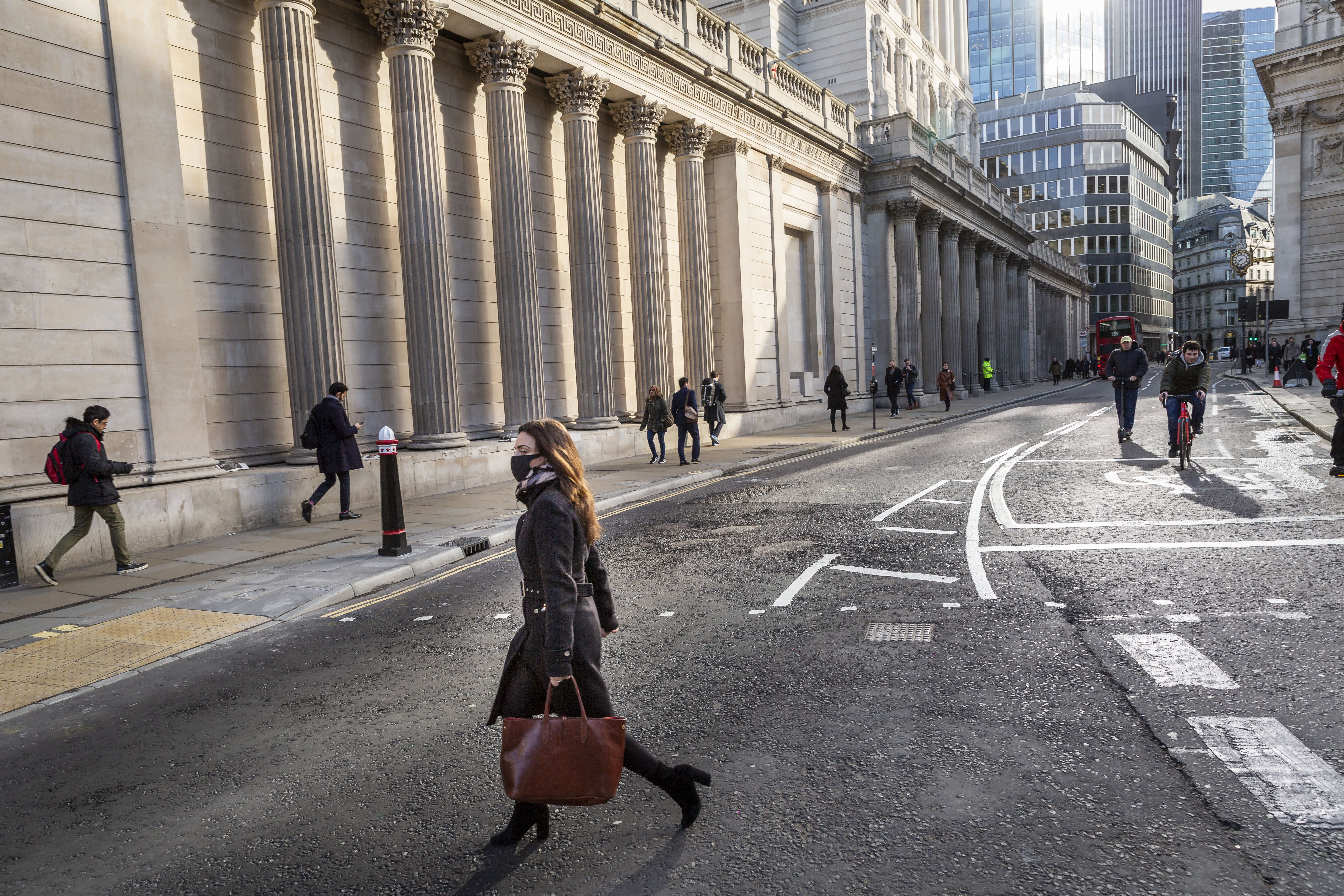
A woman wearing a protective face mask crosses the road in front of the Bank of England in what would normally be the morning rush hour in the City of London on March 17th, 2020. The financial district of the UK is unusually quiet after the government requested people to refrain from all but essential travel and activities yesterday.
Jonathan Perugia
LONDON — The Bank of England is carefully assessing the risks posed by the omicron Covid-19 variant in light of its surprise decision to raise interest rates, its Chief Economist Huw Pill told CNBC on Friday.
The U.K.’s central bank raised its main interest rate to 0.25% from its historic low of 0.1% in the face of persistent inflation pressures and a tightening labor market, defying market expectations for it to wait until the new year before kickstarting its hiking cycle.
Inflation hit 5.1% in the 12 months to November, the sharpest annual incline for 10 years and well above the Bank’s 2% target. The BOE now expects consumer price increases to peak at an annual 6% in April 2022. Meanwhile, the British economy added 257,000 jobs in November despite vacancies remaining high, indicating a further squeeze on labor supply.
“Omicron has introduced a new level of uncertainty into our assessment of the economy as a whole, the inflation outlook and the labor market developments,” Pill told CNBC’s “Street Signs Europe.”
Pill — who also serves as the Bank’s executive director for monetary analysis and research — said the Bank now needs to proceed cautiously and assess whether omicron is going to lead to some reversal of the dynamics in the British economy over the past six months and beyond, particularly the tightening of the labor market.
“I think it is also important to keep in mind that that omicron-related risk is probably two-sided, at least as it is reflected in our core objective, our ambition in terms of the inflation outlook over the medium term,” he said.
“We have some homework to do in seeing how the omicron variant impacts both public health and the developments in the U.K. economy, but also cautiously interpreting how those things influence what has to be the thing that we focus on, and the thing that we can best influence, which is the medium-term inflation outlook.”
Omicron is spreading at an alarming rate in the U.K., which saw almost 90,000 new Covid-19 cases on Thursday and recently implemented fresh social restrictions in a bid to contain the variant.
Despite the new threat, the Monetary Policy Committee opted for prudence on inflation over optionality on omicron outcomes, and will now have to hold a finger in the wind to assess whether to speed up its hiking cycle or keep policy relatively lose.
“While the Bank still expects inflation to get back to target in the medium term, action now maximises their chances of meeting their mandate in two to three years’ time,” said Jim Reid, global head of fundamental credit strategy and thematic research at Deutsche Bank, in a note.
“Indeed, inflation risks are mounting. Pay awards are already drifting up. Inflation expectations are also slowly moving. And the risk of further disruptions to global supply chains is on the rise, with the spread of Omicron threatening to temporarily derail the global recovery.”




